中文|English
時間(GMT+8:00):2022年11月28日 19:00-22:00
ZOOM参会:850 6792 3634(原聲道,設有中英文同聲傳譯)
直播:🔗 B站直播 (中文)|🔗 Youtube直播 (英文)
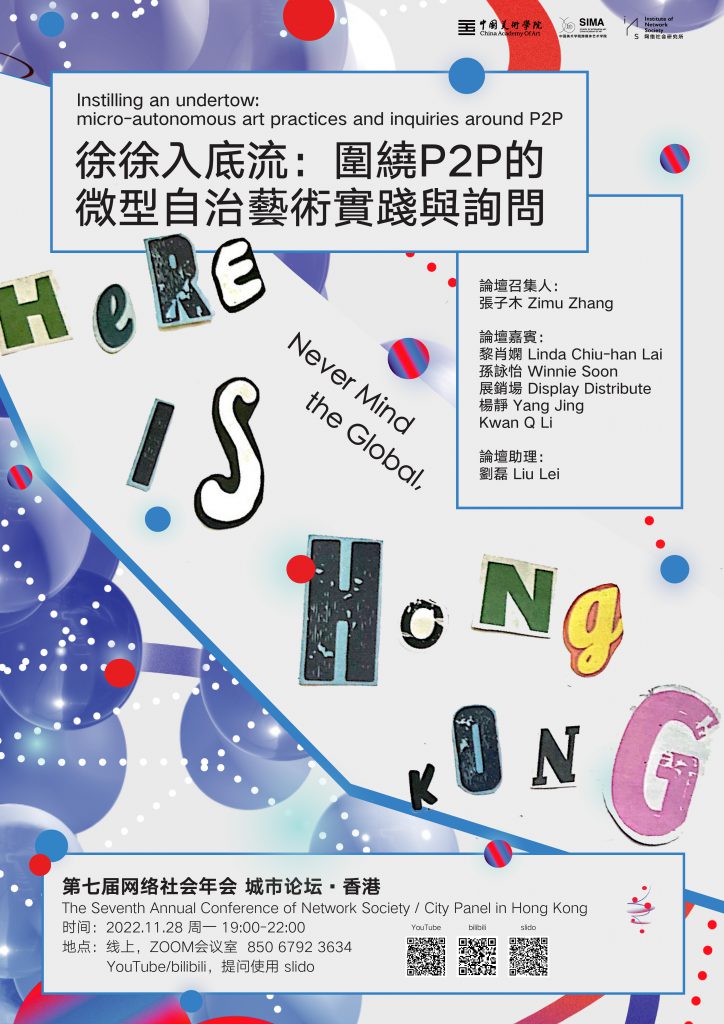
論壇嘉賓:黎肖嫻,孫詠怡,展銷場,楊靜,Kwan Q Li
論壇召集人:張子木
論壇助理:劉磊
主辦:中國美術學院 跨媒體藝術學院 網絡社會研究所
線上提問
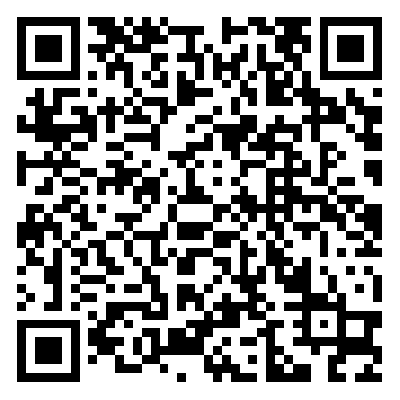
本次活動將同時在線上和線下舉行,與會觀眾可通過掃描以上二維碼或訪問以下鏈接參會提問。🔗 https://app.sli.do/event/vnGk5gZTiBAD8GK8umNPZM
引言
2020年香港政府的施政報告提出Art Tech這個關鍵詞,在後社運與疫情中的城市孤島迷霧中,明確擲出了政策與資本的探路石,一時間新的投資風口、新的高校院系專業,新的藝術節展等蜂擁而至。在這般未來導向的浪潮中,香港被視作“沒有歷史包袱”,人才融會,中西貫通的藝術科技展演之地。一種更閃光更安全的賽博朋克景象。但熱潮之下,是無法被規劃的底流 (不斷衍生的歷史遺留問題,民眾的情感匯集,創造力與破壞力兼具的草根技術......) 如果說P2P的網絡技術本質是多元化我們基於信息分享的社會關係與可連結性,但也可能制造出技術區隔、同溫層氣泡與安全隱患,在香港的後殖民社會與新興大灣區的政治經濟環境中,P2P的精神延伸更觸及到最底層單位的自治實踐。在超級時空壓縮的城市景觀與高度數字網絡化的日常生活中,我所觀察到與欣賞的本地艺术實踐者們也在尋找技術話語之中的裂縫,縫補周遭系統中的空洞,從自身經驗出發的地方性之中開展微型藝術自治,儘管困難重重。本次香港城市論壇,圍繞幾位講者的藝術實踐,我也提出幾個串連此次論壇的線索,從P2P中的P出發,結合香港的城市語境進行發思,包括銀包 (Pocket),平台(Platform),激發 (Provocation)。
銀包(Pocket):在香港這個極端新自由主義的都市,非商業性的藝術項目永續性與藝術工作者的經濟來源一直是首當其衝的棘手現實問題。即使藝術媒介再虛擬化,藝術家仍需要在寸土寸金的物理空間與物質消耗中立身,特別當藝術實踐希望朝向開放性,面向更靈活的組織形式以及社群構建,如何自我存活與可持續運作,是一個根本性的經濟前提。在當下由政府-企業主導引領的向科技藝術的進軍中,也更是一個政治經濟問題。
平台(Platform):如何搭建一個更開放,去中心化卻又具有信任感與互助友情的平台?如何讓平台更像是一種超越血緣的親緣關係(kinship)而不是技術服務與美學商品?此次論壇的講者都有很多合作性和社群性的實踐,她們也在積極搭建不一樣的平台,邀請不同的個體與物進入非商品性、非工具性以及更有趣的相遇合作。這一平台或許是酷兒化的NFT代幣(孫詠怡聯合發起的"岔經濟"項目),一種另類物流服務(展銷場的後勤人肉慢遞P2P物流網絡),流動的藝術社群(黎肖嫻發起的「文字機器創作集」小組和「據點。句點」社群),彌合虛擬與線下的城市遊戲空間(楊靜的電子遊戲設計與面向社群建設的遊戲聚會),人類間以至跨物種的協作 (Kwan Q Li 有關野草、藻、和註釋的作品)。
激發(Provocation):此次論壇的講者均為女性主義者,這並不是一個意外驚喜,而是蓄意為之,是我作為召集人對於這個話題的provocation,我翻譯為激發。技術藝術或者藝術技術 (香港目前官方的宣傳詞是Art Tech)的官方想像總接近一種宏大的去性別化的科學主義面貌,在技術藝術的範疇之下,女性主義、酷兒理論以及批判性思考如何可以將現有的技術批評注入多元交織性?在一個已經沒有外部的數字技術系統之中,我們如何去看待、挑戰自己在一個個不同交疊系統之中的角色 (藝術系統,學術系統,形形色色的機構......)。身為個體與群體性的城市生物,在時空超級壓縮卻也是文化多元、物種生態豐富的香港,藝術家們又如何富有關懷與幽默感地與不同人群與非人類物種協作共謀,將同伴“peers”的內涵拓寬擴大?
同樣重要的是,本次論壇意在質詢,不止於展示,關於P2P等技術話語的日常實踐,相比答案,我們仍有更多問題,也面臨很多或許無法被消弭的困境,我們也將這次論壇視作為一種互相傾訴與傾聽。
(文:张子木)
與會嘉賓
黎肖嫻
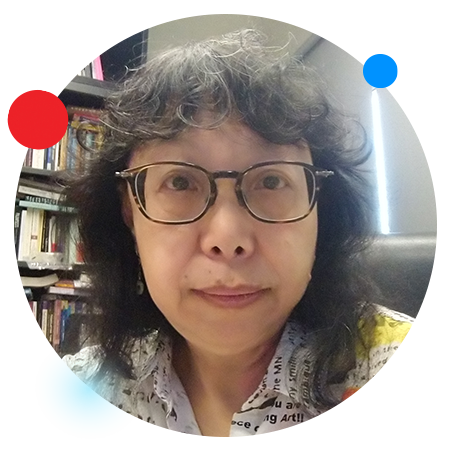
🔗 黎肖嫻,跨領域藝術家、學者、當代媒體藝術策展人。其實驗性錄像作品著眼香港的城市生活與歷史敘事實驗,並基於女性主義的感知性,將歷史、理論與實踐的整合視為藝術創新的核心。黎氏的影像作品曾參展德國奧柏豪辛國際短片節、相遇國際錄像藝術節—巴黎/柏林及台灣國際女性影展等實驗電影/錄像節。她將藝術、人文學科與科學/技術相結合的志向始於與她2004年創辦的新媒體小組 🔗「文字機器創作集」,持續地進行策展實驗來定義跨學科思考的批判性。同時,作為藝術家項目 🔗「據點。句點」的創辦人,她與年輕畢業生一起探索更具體的生存與可持續的創作路徑,也關注新技術的使用與新社群的建立。據點發起的線上視頻雜誌 🔗 “平地數碼” 項目,獲得了林茨電子藝術節 “State of the ART(ist) 2022” 獎項。
🔗 城大創意媒體學院
孫詠怡
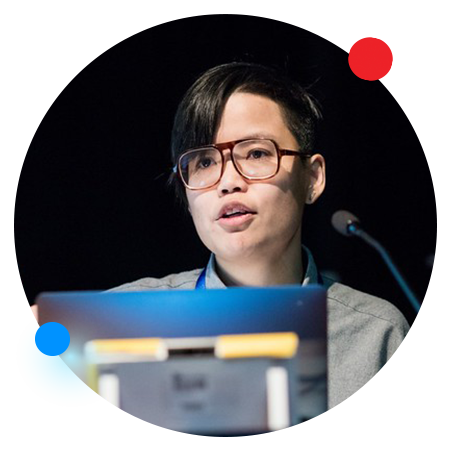
🔗 孫詠怡 生長於香港,是一位藝術程式員、藝術家及學者。其作品涉及自由和 🔗 開源文化、🔗 不同形式的編碼程式設計、🔗 藝術/技術手冊指南、🔗 公民科技 和 🔗 微小科技 等主題去探究其科技的政治性。自 2022 年以來,孫氏是軟件研究叢書(麻省理工學院出版社)的聯合主編。 孫氏在博物館、畫廊、藝術/科學節、圖書館、學院和分佈式網絡上作主題演講、公開演講、研討會,並在國際上發表和展示他的作品。他獲得了斯圖加特電影冬季網絡文化擴展媒體獎、WRO 2019 媒體藝術雙年展獎、入圍電子文學公共圖書館獎、並分別在第 26 屆和第17屆ifva獨立短片及影像媒體節中獲得特別表揚及銀獎。他目前在丹麥奧爾胡斯大學擔任副教授,並在倫敦南岸大學網絡圖像研究中心(CSNI)擔任客座研究員。
展銷場
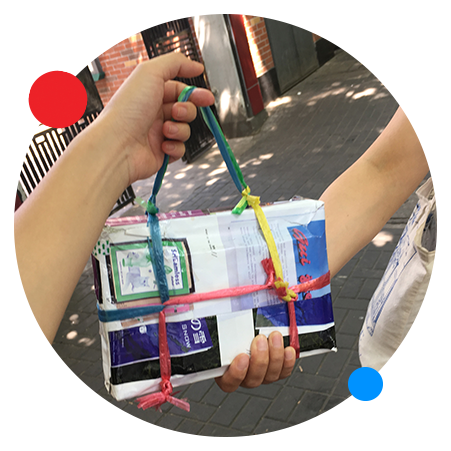
在一系列探究非規範性的物體與人的運動的項目中,由 🔗 展銷場 組織的 🔗「後勤慢遞」運作著一個不斷擴大中的服務與讀者和自治出版者之間的分發平台和旅行日誌。被形容為一種“不及時”的小商戶,後勤慢遞借用旅人網絡于國際物流架構中剩餘的攜帶能力,傳遞基於東亞和東南亞的紙本印刷的藝術和理論生產之外,同時創造其他形式的相遇以及知識交換。🔗 何穎雅 被提名為後勤慢遞2016年8月的月度慢遞員。
楊靜
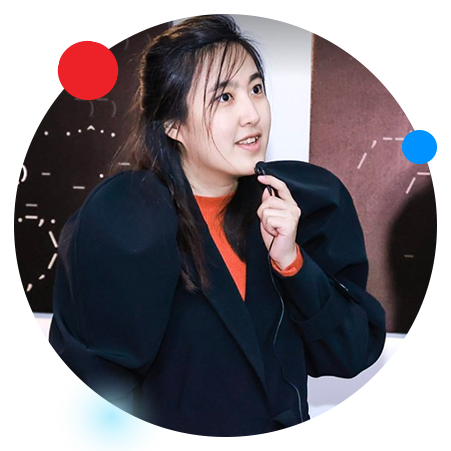
🔗 楊靜: 遊戲製作人、策展人和研究者。她的工作涵蓋了遊戲製作和遊戲文化的許多方面。她最近的作品 🔗 《遺忘工程师》是一款敘事遊戲,在全球範圍內獲得了多個獎項。她現在從事多個遊戲製作項目,從文學遊戲到 VR 平台遊戲和動作捕捉遊戲劇場。除了遊戲製作,她還以長期致力於 🔗 遊戲评论 和 🔗 策展工作。她的敘事作品,如書籍、研究論文和策展,廣泛存出現於各種遊戲媒體、出版平台和學術書籍上。
Kwan Q Li

🔗 Kwan Q Li 的創作涉獵 🔗 錄像、攝影、裝置、🔗 表演 和寫作,在 🔗 跨學科 背景下探索建制、科技政治和文化勢力的矛昏。畢業於牛津大學純藝術學士和麻省理工學院藝術、文化和科技碩士。獲得獎項包括牛津Stuart Morgan 藝術史論文獎、麻省理工學院Enterprise Poets寫作獎及 🔗 Harold and Arlene Schnitzer Prize。作品曾獲國際資助和展覽,包括麻省理工學院出版社 Thresholds Journal Vol.50(2022)、威尼斯建築雙年展香港館(2021)、藝術儀貳(2021)、Ars Electronica RIXC Garden(2021)、新加坡南洋理工大學當代藝術中心和美國New Museum合辦的 IdeasCity(2020)、香港信言設計大使研究資助(2019)等。她在麻省理工學院獲研究生教學獎學金, 現於香港大學創意傳播文學碩士課程任教。
議程(GMT+8:00)
2022年11月28日 19:00-22:00
時間 | 流程 | 演講人:內容 |
19:00-19:25 | 論壇主題演講 1 | 黎肖嫻:藝術的科技性、科技的人文應用:一張未完的清單 |
19:25-19:50 | 論壇主題演講 2 | 孫詠怡:公民社區與開源平台:P2P的藝術科技與政治交匯處 |
19:50-20:15 | 論壇主題演講 3 | 展銷場:超流通作為形式 |
20:15-20:40 | 論壇主題演講 4 | 楊靜:從遊戲廚房到遊戲地圖:好玩的點對點社群聯結 |
20:40-21:05 | 論壇主題演講 5 | Kwan Q Li:邊緣敘 |
21:05-22:00 | 問答&討論 |
論壇召集
論壇召集人:張子木
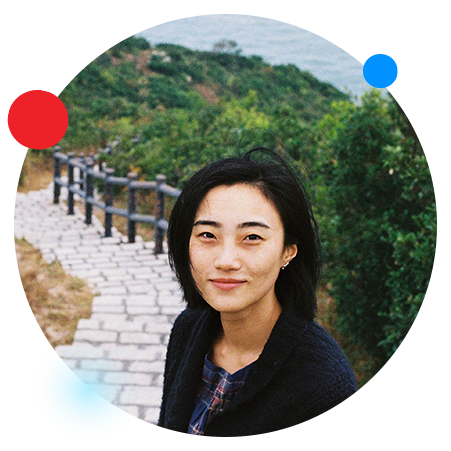
張子木是一位研究者、策展人與動態影像作者。她曾於歐盟Docnomads聯合碩士項目學習紀錄片導演,後在香港城市大學創意媒體學院獲得博士學位,研究方向為生態視閾下的視覺文化。她是2022年慕尼黑大學蕾切爾卡森環境與社會研究中心獎學金獲得者。她也是關注東亞生態藝術研究的“萬物實踐社”成員。
論壇助理:劉磊
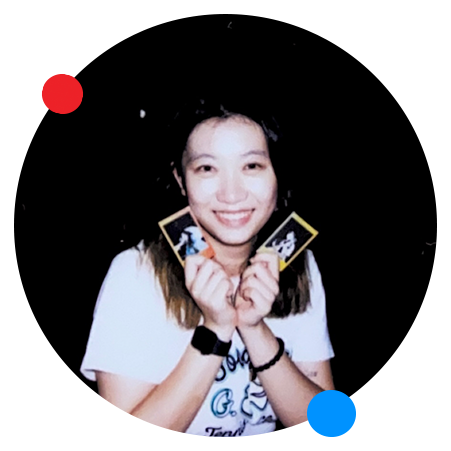
劉磊,現本科就讀於香港中文大學文化管理學系,並輔修人類學考古與商科金融。關注歷史時期以來中國語境下文化藝術的社會性,興趣從青銅器到政治波普再到藝術科技。未來的文化研究者與策展人。
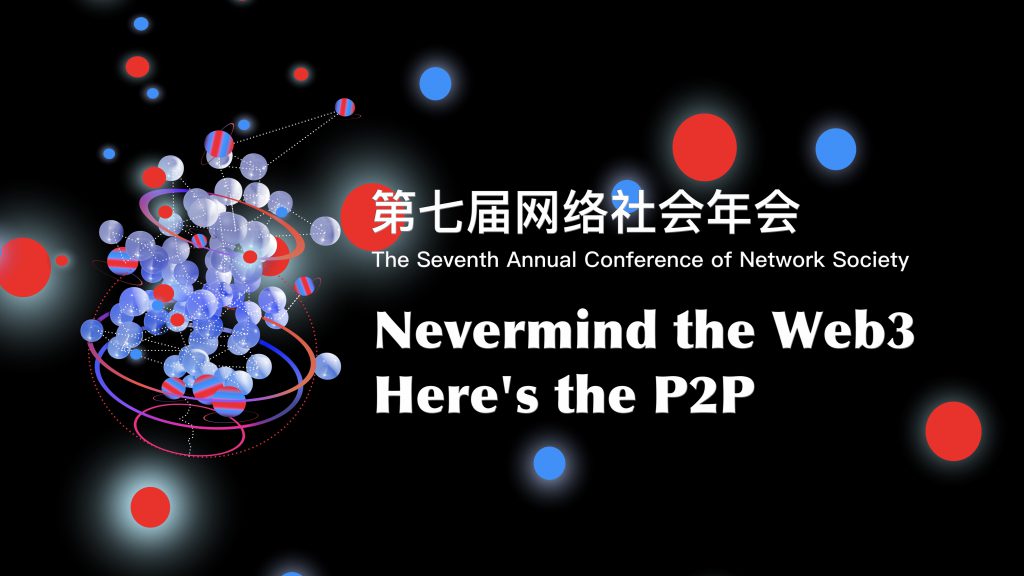
第七届网络社会年会 2022.11.20-11.28
中文|English
instilling an undertow: micro-autonomous art practices and inquiries around P2P
Date & Time(GMT+8:00): 19:00-22:00, Nov. 28, 2022
ZOOM:850 6792 3634(English/Chinese)
Livestream: 🔗 Bilibili (Chinese)|🔗 Youtube (English)
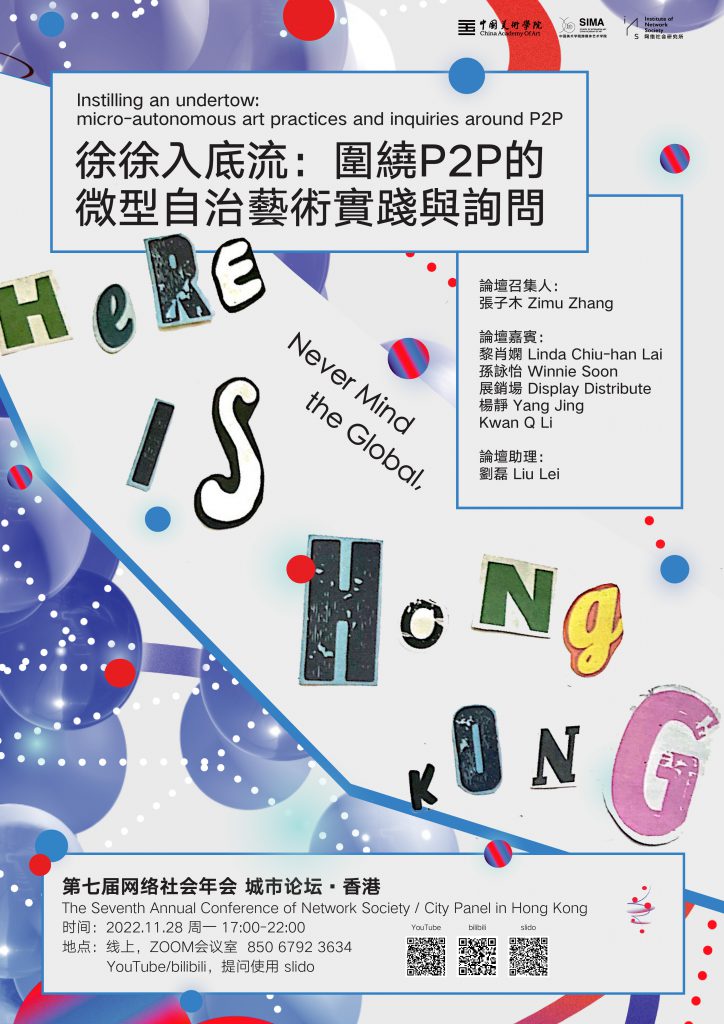
Speakers: Linda Chiu-han Lai, Winnie Soon, Display Distribute, Yang Jing, Kwan Q Li
Organizer: Zimu Zhang
Assistant: Liu Lei
Host: the Institute of Network Society, School of Inter-media Art, China Academy of Art
AUDIENCE INTERACTION

To interact during the conference, Scan the QR code or visit 🔗 https://app.sli.do/event/vnGk5gZTiBAD8GK8umNPZM , and leave your comments.
INTRO
In the 2020 Hong Kong government policy address, “Art Tech” was one of the keywords being pushed. It tossed a directional stone for policy and capital in the midst of a post-social movement and a pandemic-stricken city. Following this, new promising investments, university majors and art exhibitions, among other activities quickly poured in. Under these future-oriented waves, HK was promoted as a performance stage for Art Tech, which is “without historical baggage”, integrates talents well, and fuses Chinese and western culture. A more shiny and secure cyberpunk image. Beneath the warm waves, there is an undertow pulling back; an undertow of generative historical remains, people's emotional influx, and creative and destructive grassroots techniques. If the essence of P2P network technology is to multiply our social relations and connectivity based on information sharing, it could also result in a technological divide, echo chambers and security risks. In the HK postcolonial (commented by Anonymous, 9:10 AM Today: hk definitely not postcolonial, hahahah, but just my opinion) society and emerging “Big Bay” political economy, the P2P spirit can be extended to the basic unit of autonomous practices. In an urban landscape of super time-space compression as well as a highly digitally-mediated everyday life, local artists are despite many obstacles constantly searching for the fissures amidst technological discourse, suturing systematic gaps in the nearby, carrying out micro-artistic autonomies from their embodied places. In the HK city panel, from the invited speakers’ art practices, I also want to suggest several threads for this discussion, departing from the “P”s in the “P2P” and combining it with a HK context: Pocket, Platform and Provocation.
Pocket: In an extreme, neoliberal metropolis like HK, the survival of non-commercial art projects along with artists’ income have been pertinent and tricky issues to solve. No matter how virtual art practices become, artists still have to sustain themselves in a high-cost space. Art projects focused around openness and flexibility in organization and community building find it especially hard to maintain themselves. Survival and sustenance is a fundamental economic premise. In the government and corporate-led art-tech march, this is also an issue of political economy.
Platform: How do we build a platform that is more open, decentralized as well as capable of trust and mutual friendship? How do we turn platforms more towards kinship beyond blood ties rather than as technological services for aesthetic commodities? The panel speakers have all engaged in many collaborative and community practices, they have been actively constructing alternative platforms, inviting an internet of different individuals and things to enter non-commercial, non-instrumental and more joyful encounters and collaborations, whether through the queering NFT project (the Forkonomy project co-initiated by Winnie Soon), an alternative logistics network (the P2P LIGHT LOGISTICS project by Display Distribute), fluid art communities (the Writing Machine Collective and Floating Project founded by Linda Lai), urban game spaces bridging the online and the offline (Yang Jing’s game design and community building effort in game gatherings), or new forms of human and non-human rapport (Kwan Q Li’s work on weeds, algae, and annotation).
Provocation: The panel speakers are all feminists, which is not a coincidence but an active decision. This is the provocation I push for as a city panel organizer. The official image of Art Tech has a grandiose, degendered (commented by Anonymous 9:31 AM Today: 'degendered' in this context means 'male' and 'patriarchal', hahaha) and scientific outlook. Under this paradigm, how do feminism, queer theory and other intersectional approaches contribute to technological criticism? In an all-encompassing digital system, how do we regard and challenge our own roles within different overlapping sub-systems (the art system, academic system, all kinds of institutions…). As an urban species of both individuals and groups, in a super time and space-compressed but also diverse multispecies ecology in HK, how do artists carry out cooperation and conspiracy with other humans and nonhumans with care and humor, so as to enlarge and diversify their “peers”?
In this panel, we equally hope to inquire, not just to display. For the daily practices of technological terms like the P2P, rather than ready answers, we have more questions. We are also faced with some obstacles that may be impossible to eradicate. So we will also use this panel as an opportunity for mutual confiding and listening.
(by Zimu Zhang)
PANEL SPEAKERS
Linda Chiu-han Lai

🔗Linda Chiu-han Lai is a transdisciplinary artist, academic, and curator of contemporary media arts. Her experimental video works explore Hong Kong urbanism and historiographic experiments, grounded in a feminist sensibility that integrates history, theory and practice as central to artistic innovation. Her video works have been exhibited at the International Short Film Festival Oberhausen, Rencontres Internationales Paris/Berlin, Women Make Waves (Taipei), and different experimental film/video festivals. Her commitment to bringing art, humanities and science/technology together began with her founding the new media art group 🔗the Writing Machine Collective in 2004, with persistent curatorial experiments to define the criticality of cross-disciplinary thinking. More recently, her concern informs her research and teaching in media archaeology. With the 🔗Floating Projects (FP, 2015- ), she explores with young graduates concrete possibilities of survival and sustainability, focusing also on deploying new technology to form new communities. 🔗D-Normal/V-Essay, a FP initiative in the form of an online video zine, is Winner of Ars Electronica’s “State of the ART(ist) 2022” initiative.
🔗https://www.scm.cityu.edu.hk/people/lai-chiu-han-linda (CityU-School of Creative Media faculty)
Winnie Soon
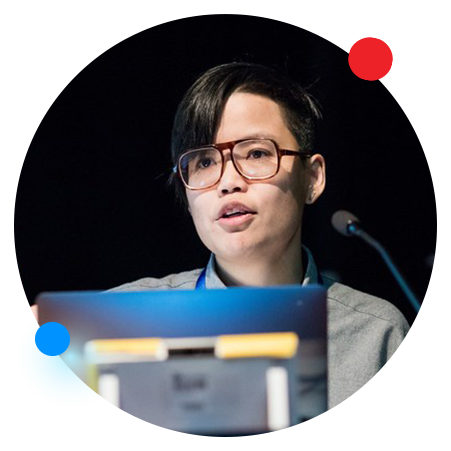
🔗Winnie Soon is an artistic coder and scholar who was born and raised in Hong Kong. Their practice and research intersects with art and technology in the context of Computational Cultures, engaging with topics like Free and 🔗Open Source Culture, coding otherwise, 🔗artistic tech manuals, 🔗civic technologies and 🔗minor technology. Since 2022, Soon has been the co-editor of the Software Studies Book Series (MIT Press), focusing on software as a site of societal and technical power. Winnie Soon has given keynotes, public talks, workshops as well as published and exhibited their works internationally at museums, galleries, art/science festivals, libraries, universities, conferences and distributed networks. Artistically, they received the Expanded Media Award for Network Culture at Stuttgarter Filmwinter — Festival for Expanded Media, WRO 2019 Media Art Biennale Award, the Public Library Prize for Electronic Literature (short-listed), Literature in Digital Transformation in 2019, and the 26th and 17th ifva awards (Special Mention and Silver award) in 2021 and 2012. They are currently working as Associate Professor at Aarhus University and visiting researcher at the Center of the Study of the Networked Image (CSNI), London South Bank University.
Display Distribute

🔗Display Distribute: Among several recent inquiries into the illicit movements of goods and people, the 🔗LIGHT LOGISTICS project organised by Display Distribute operates as a burgeoning distribution platform and travelogue in service of the channels between readers and ‘semi-autonomous' publishers. Described as a 'not-in-time' enterprise, LIGHT LOGISTICS appropriates the surplus carrying power of a network of travellers within the architectures of global logistics, simultaneously creating other forms of encounter and knowledge exchange parallel to the print-based production of critical practices in art and theory from East and Southeast Asia. 🔗Elaine W. Ho, co-conspirator of Display Distribute, was named LIGHT LOGISTICS August 2016 Courier-of-the-Month.
Yang Jing
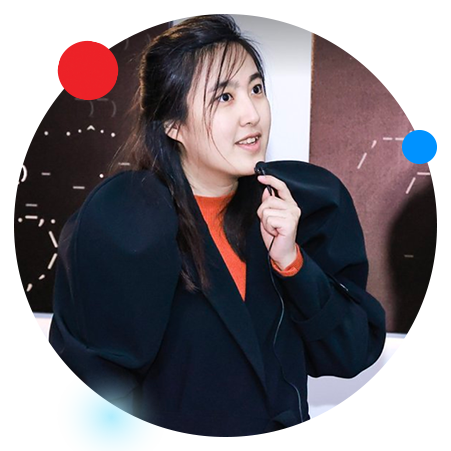
🔗Yang Jing is a game producer, curator and researcher based in Hong Kong. Her work covers many aspects of game production and gaming culture. Her recent work, 🔗Forgetter, a narrative game, has won multiple awards world-wide. She is now working on multiple game production projects, ranging from literature games, to VR platformer games and motion-capture game theater. Besides game production, Yang is known for her long-time dedication to 🔗game critique and 🔗curation works. Her narrative output such as books, research papers and curations are widely available on various game media, publishing platforms and academic books.
Kwan Q Li
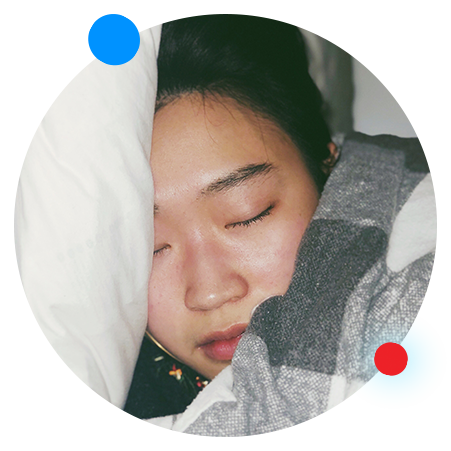
🔗Kwan Q Li : Coalescing 🔗lens-based media, installation, 🔗performance, and writing, Kwan Q Li’s studio practice examines the ambivalence of institutional, technopolitical, and cultural power through 🔗interdisciplinary exploration. Queenie holds a BFA from Oxford University, and a SM in Art, Culture, and Technology from MIT. Queenie is the recipient of awards including a thesis prize - the Stuart Morgan Prize for Art History (Oxon.), the Enterprise Poets Prize, and 🔗the Harold and Arlene Schnitzer Prize (both MIT). Her work has been supported and exhibited internationally, including at Thresholds Journal Vol.50 (MIT Press, 2022), Venice Architecture Biennale (HK Pavilion, 2021), Art Machines 2 (HK, 2021), Ars Electronica RIXC Garden (LV, 2021), IdeasCity by the NTU CCA and the New Museum (SG/US, 2020), Design Trust (HK, 2019), and more. She received a graduate teaching fellowship at MIT, and is currently teaching at the Master of Arts in Creative Communications programme at HKU.
SCHEDULE(GMT+8:00)
2022/11/28 19:00-22:00
TIME | SPEAKER: SPEECH | |
19:00-19:25 | KEYNOTE 1 | Linda Chiu-han Lai: Art <-- --> Tech: an inventory of an 18-year-old experiment |
19:25-19:50 | KEYNOTE 2 | Winnie Soon: Civic communities and Open platforms: P2P at the intersection of Art Tech and Politics |
19:50-20:15 | KEYNOTE 3 | Display Distribute: Ultra-Circulation as Form |
20:15-20:40 | KEYNOTE 4 | Yang Jing: From Game Kitchen to Game Atlas: Playful P2P community building |
20:40-21:05 | KEYNOTE 5 | Kwan Q Li: Marginalia |
21:05-22:00 | DISCUSSION |
Organizing
Organizer: Zimu Zhang
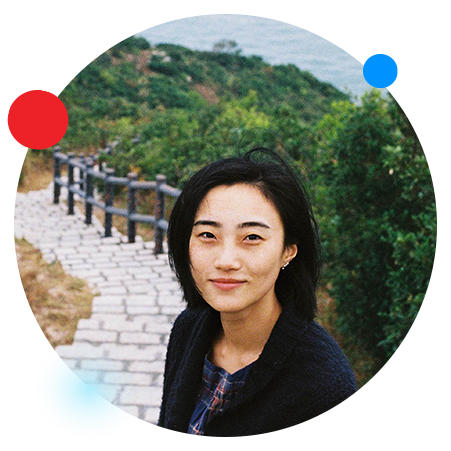
Zimu Zhang is a researcher, curator and moving image practitioner. She has a doctorate on ecological visual culture from School of Creative Media, City University of Hong Kong and a master degree in documentary filmmaking from Erasmus Mundus Joint master program Docnomads. She is the recipient of the 2022 Landhaus fellowship at the Rachel Carson Center for Environment and Society, LMU. She is a member of the Wanwu Practice Group that focuses on ecology and art research in east Asia.
Assistant: LIU Lei
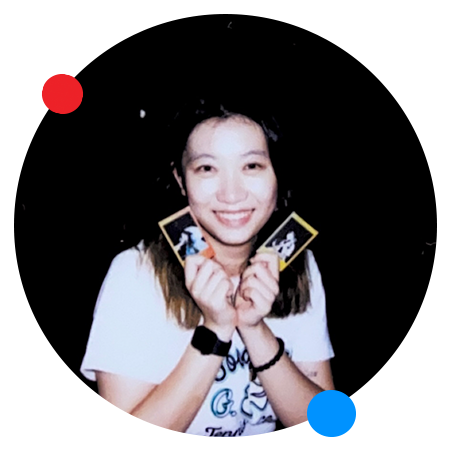
LIU Lei is studying at the Department of Cultural Management at the Chinese University of Hong Kong as an undergraduate, with minors in Archaeology and Finance. She is interested in the social meaning behind art and culture since the historical period in the Chinese context, from bronze to political pop to art tech. She is a future culture researcher and a curator-to-be.

THE 7TH ANNUAL CONFERENCE OF NETWORK SOCIETY, 2022. 11. 20 - 11. 28
